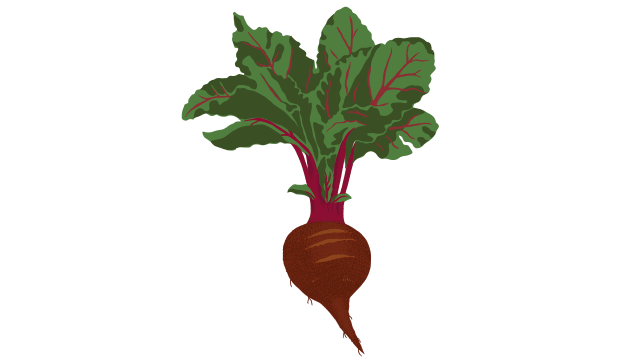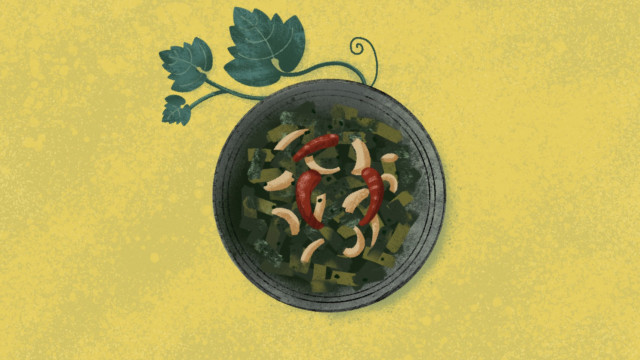Mustard Greens & Gardening Wisdom

Winter is a glorious time in my Delhi garden. All the hard work of North India’s fleeting autumn — preparing beds, starting seeds, transplanting and tending to the seedlings —is finally coming to fruition. Cooler temperatures have helped seasonal herbs leaf out into bushy plants. They are looking lush, and filling in for the now dormant mint. The mustard and carrot families are putting forth an impressive show. The colder it gets, the better their flavor.
The tall, self-seeding rai (a variety of Brassica juncea) always steals the show in my winter garden. Its giant leaves, which are less pungent than sarson (Brassica rapa, another mustard), feature frequently on the lunch thali in different avatars, our favorite being rai cooked Punjabi-style with spinach, radish greens, and bathua (lambsquarters).
Failures and Everyday Joys
If you are like me and don’t spend all of your ample free time tending the garden, it is likely you have buried your share of failed attempts under the compost pile, or reaped a disappointing harvest every now and then. Perhaps the squirrels got the strawberries, or the cauliflower heads grew no bigger than the marigolds. Often enough, the carrots and radishes we pull out look nothing like their pretty selves piled high on the bhajiwalla’s pushcart.
We tend to celebrate perfection. Waiting for a miracle to happen, we overlook the little bounties of life, the small everyday moments that can bring joy. It has taken a few seasons of gardening for me to fully appreciate the abundance that surrounds me. Tending a garden provides many opportunities to seek delight in something that is transient. Call it an epiphany that the garden offers every day. I had been missing the proverbial forest for the trees.
For example, there is a special food resource available only to a gardener — even to a failed urban gardener — that is not available to the common shopper. I am talking about the greens attached to all that we try to grow. The turnips, beets, or carrots on the supermarket shelves are rarely sold with their greens, which have a shorter life and so are sacrificed to ensure that vegetables arrive from the farm looking perky. But even the fledgeling kitchen garden has a profusion of organically grown greens. You and I, with our little potted root vegetables, get a free run at the freshest of them.
If my toil in the garden produces more greens than anything else, I am not complaining. In fact, it has become a problem of plenty — too much of a good thing. Loathe to compost anything I can cook, I have had to become very creative in using up the bushels of greens that come my way. In addition to cooking with them, I have been adding them to my pickles and ferments, and also freezing them for later use.
Green Power
Greens make a good addition to any soup. Leaves of all the brassicas — cauliflower, kohlrabi, and broccoli — taste delicious braised simply in a watery broth, seasoned with a pinch of hing in mustard oil, and a chile or two. This is how we cook many of our seasonal greens in Kashmir. I am yet to meet a Kashmiri, child or adult, who does not love haakh (collard or other greens) cooked this way but, to use up the variety of leaves my garden continuously produces, I have had to come up with ways beyond this very basic treatment.
Don’t ignore the good for the great. While you work on that green thumb of yours, take advantage of the incredible bounty already at hand, the little green miracles a few pots in your balcony can provide. For all the failed experiments, I haven’t needed to shop for greens in the five years that I have been gardening (un)successfully. Every meal I cook invariably includes some green or the other. Be prepared to have your mind blown by the sheer variety of leaves on your plate once you start cooking with them. Your lunch will be the envy of your colleagues.
Key Takeaways
- Gardening teaches you to embrace imperfection.
- Seek abundance in a garden.
- Turn "waste" into food while gardening.







